Durability and Structural Health Monitoring Lab
The Durability and Structural Health Monitoring Lab at IRC-CBM is dedicated to advancing the understanding of material degradation, structural performance, and service life estimation under real and accelerated conditions. The lab serves as a testing and research environment for developing and validating innovative monitoring technologies and strategies that enhance infrastructure resilience. The lab is equipped with a wide range of advanced facilities that support:
- Durability testing of concrete and cementitious systems
- Corrosion evaluation and electrochemical characterization
- Non-destructive testing (NDT) techniques for structural health assessment
- Accelerated conditioning and environmental simulations
- Service life modeling and damage mitigation strategies
Key Facilities and Capabilities
| Automatic Concrete Water Permeability System | Electrochemical Workstation | Accelerated Curing Tank & Controlled Temperature Units |
| Rapid Chloride Permeability Tester (RCPT) | Bulk Electrical Resistivity Setup | Vacuum Oven, Bench Ovens, and Water Baths |
Concrete Carbonation Chamber | Wireless Resistivity Sensors | Ultrasonic Pulse Velocity (UPV) |
| Shrinkage Apparatus | Humidity Cabinet | Air Entrainment Meter |
| Potentiostat/Galvanostat Devices (SP-150e, SP-300, CH Instruments) | Autoclave & High-Temperature Furnaces | Moisture Meter & Digital Multimeters |
Electronic Extensometer | Abrasion Tester (Bohme) | Bleeding & Penetrometer Apparatus |
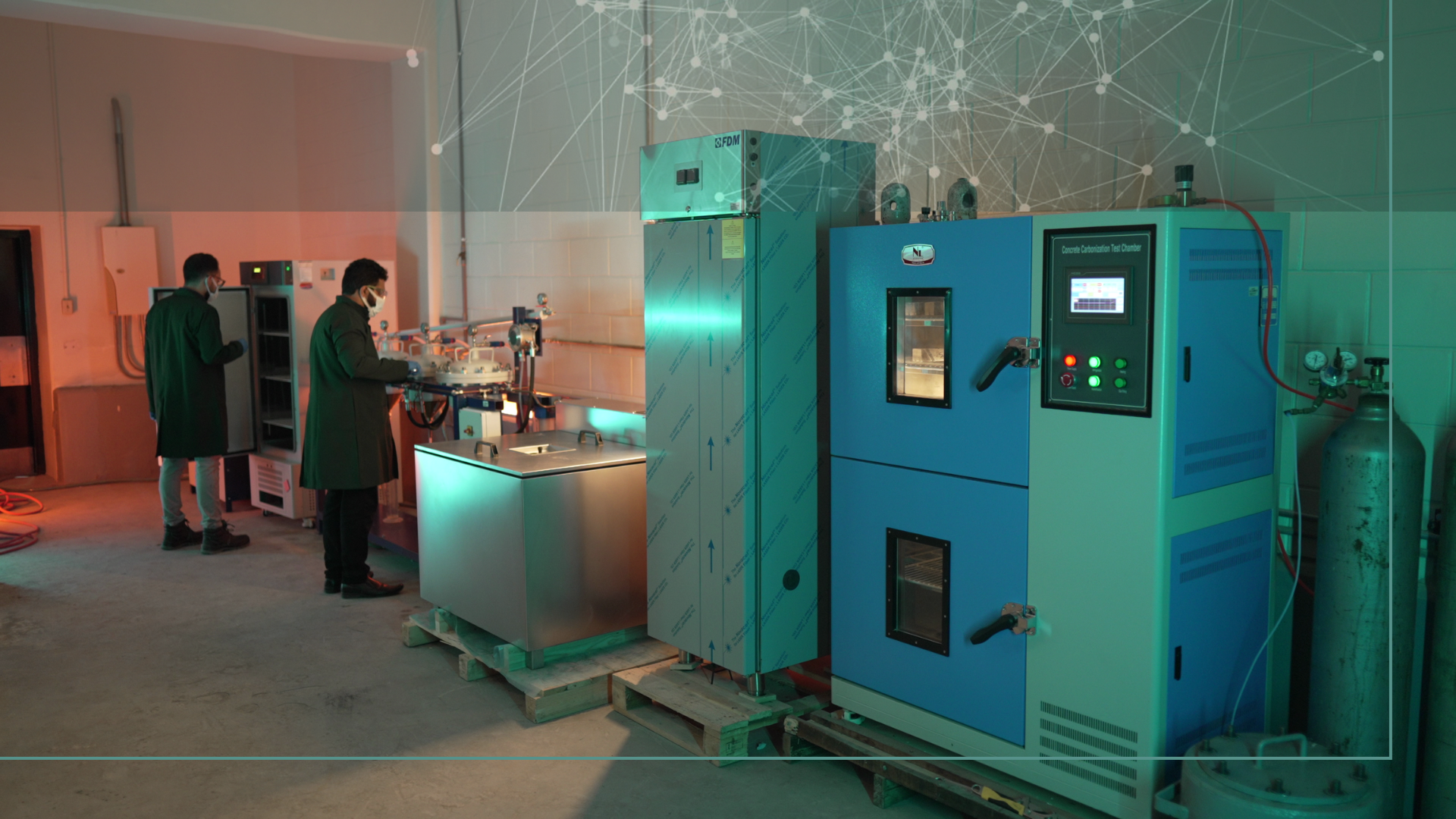
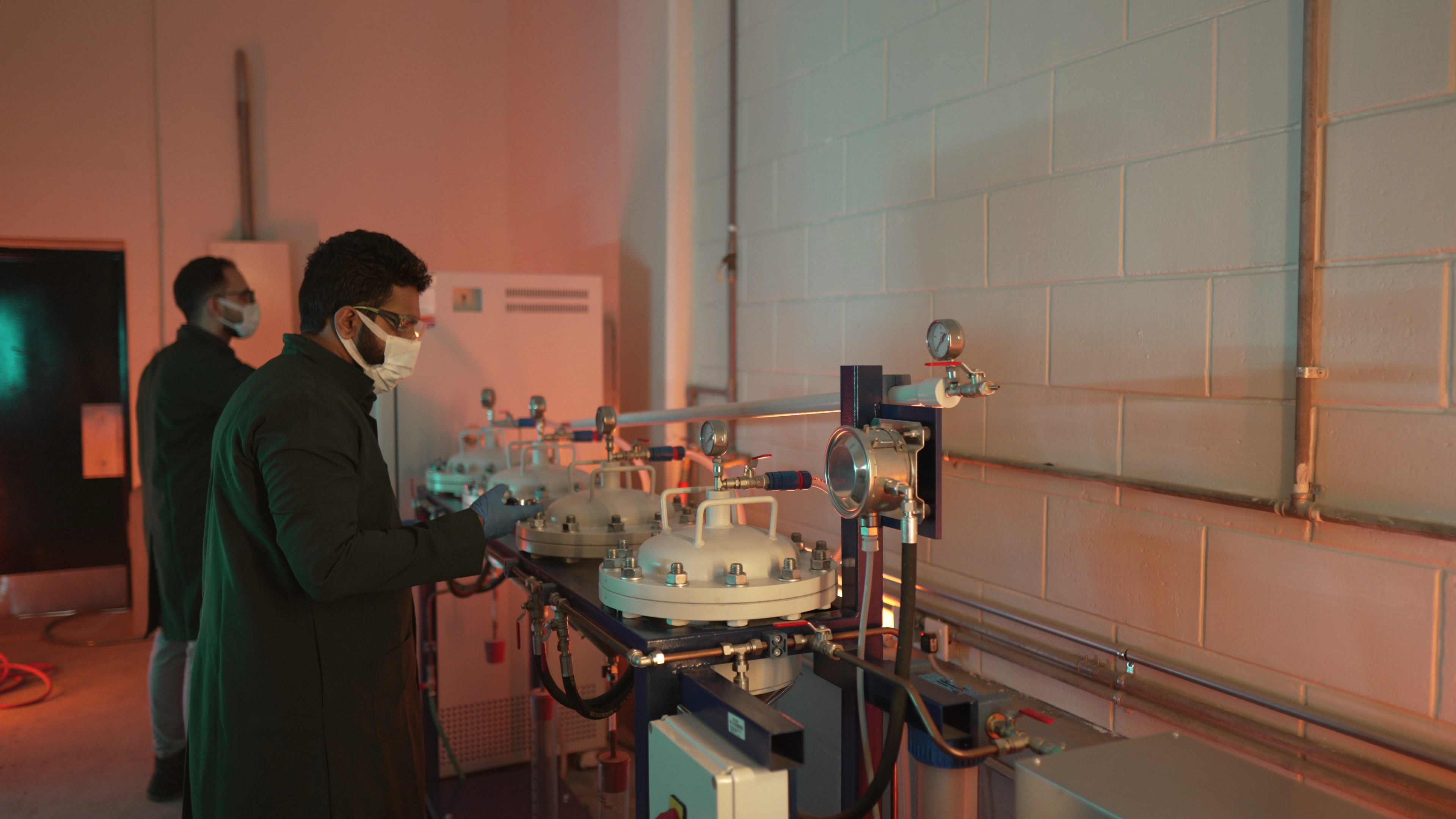 |  |  |
 | 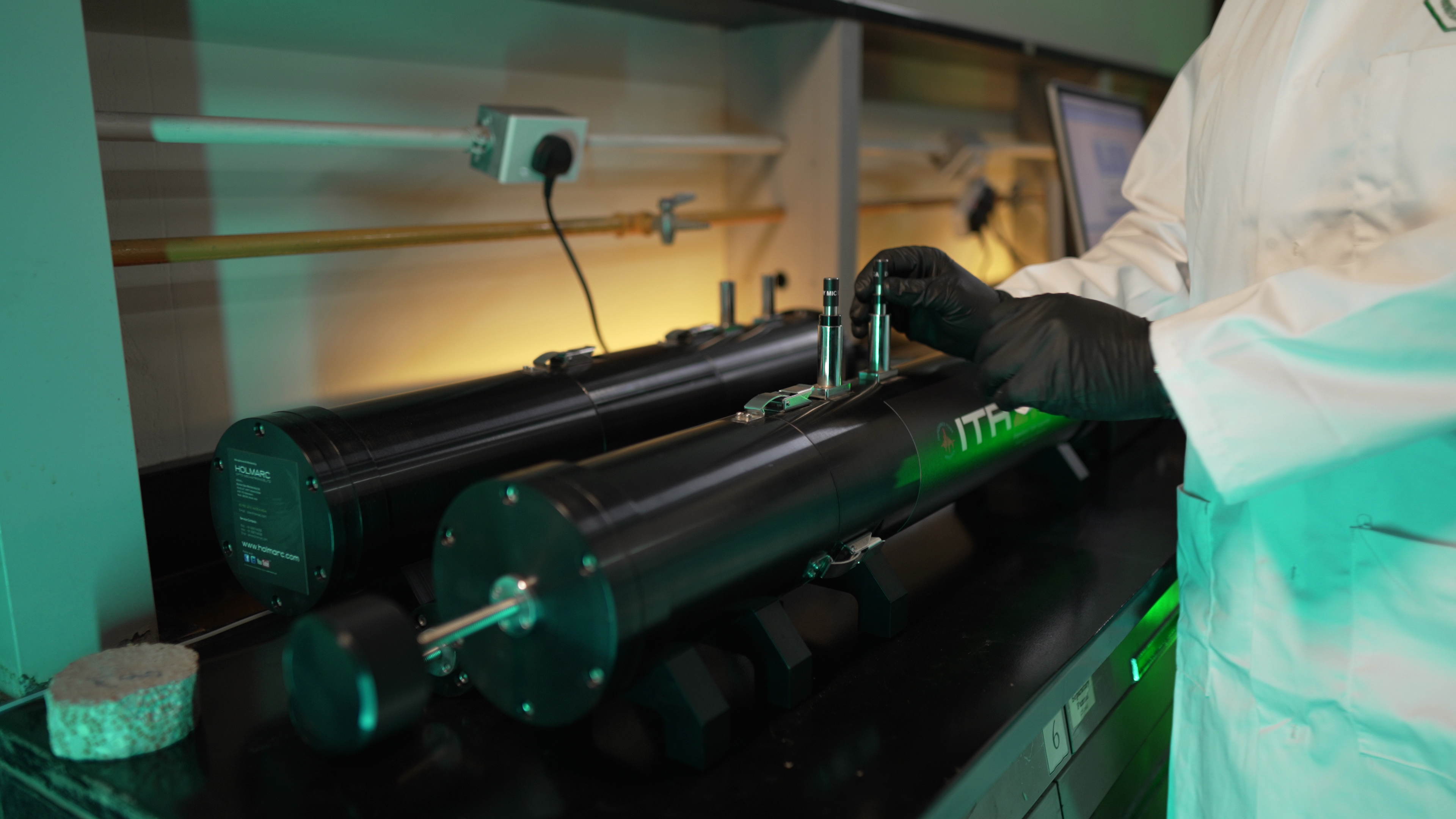 | 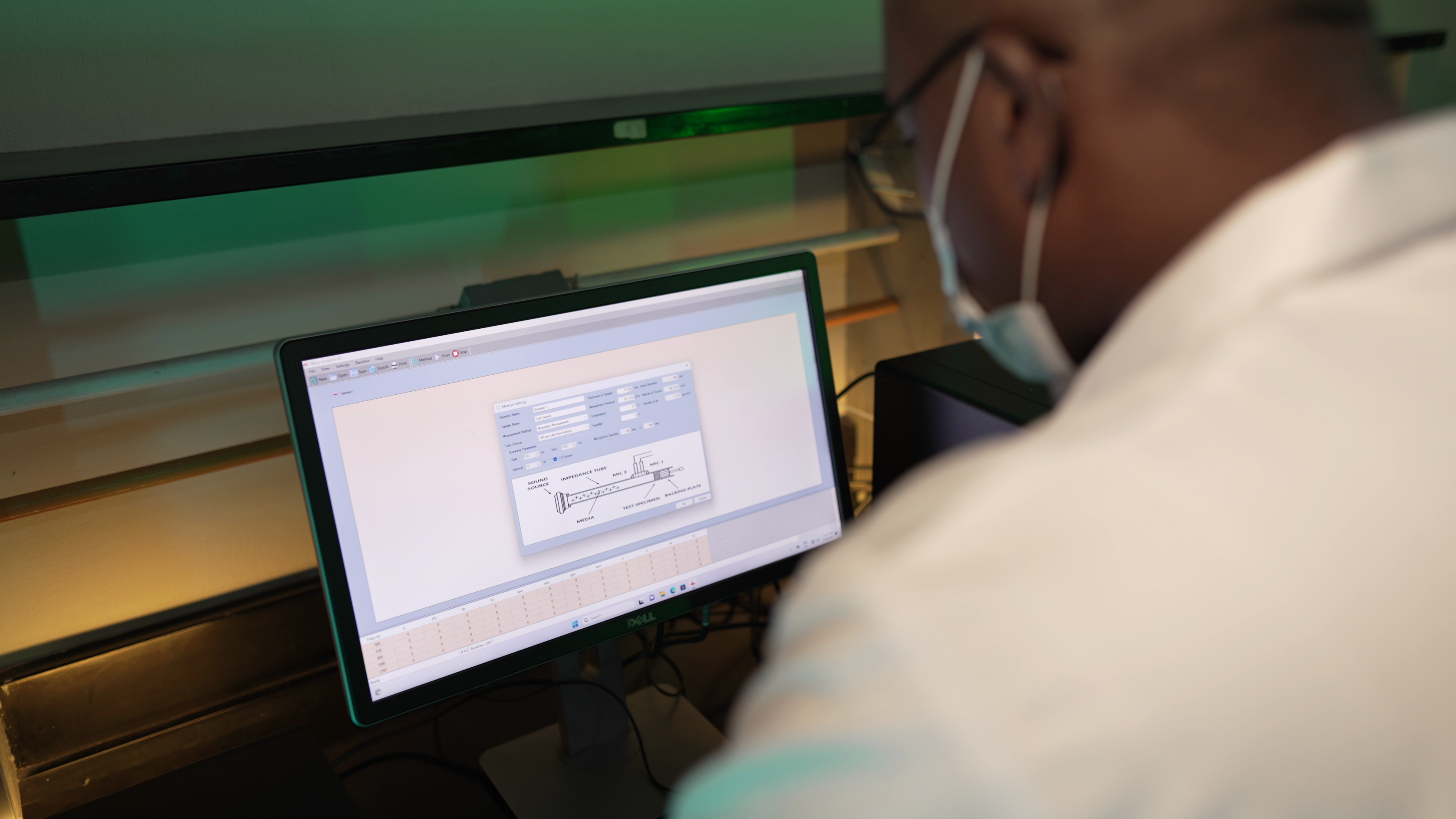 |

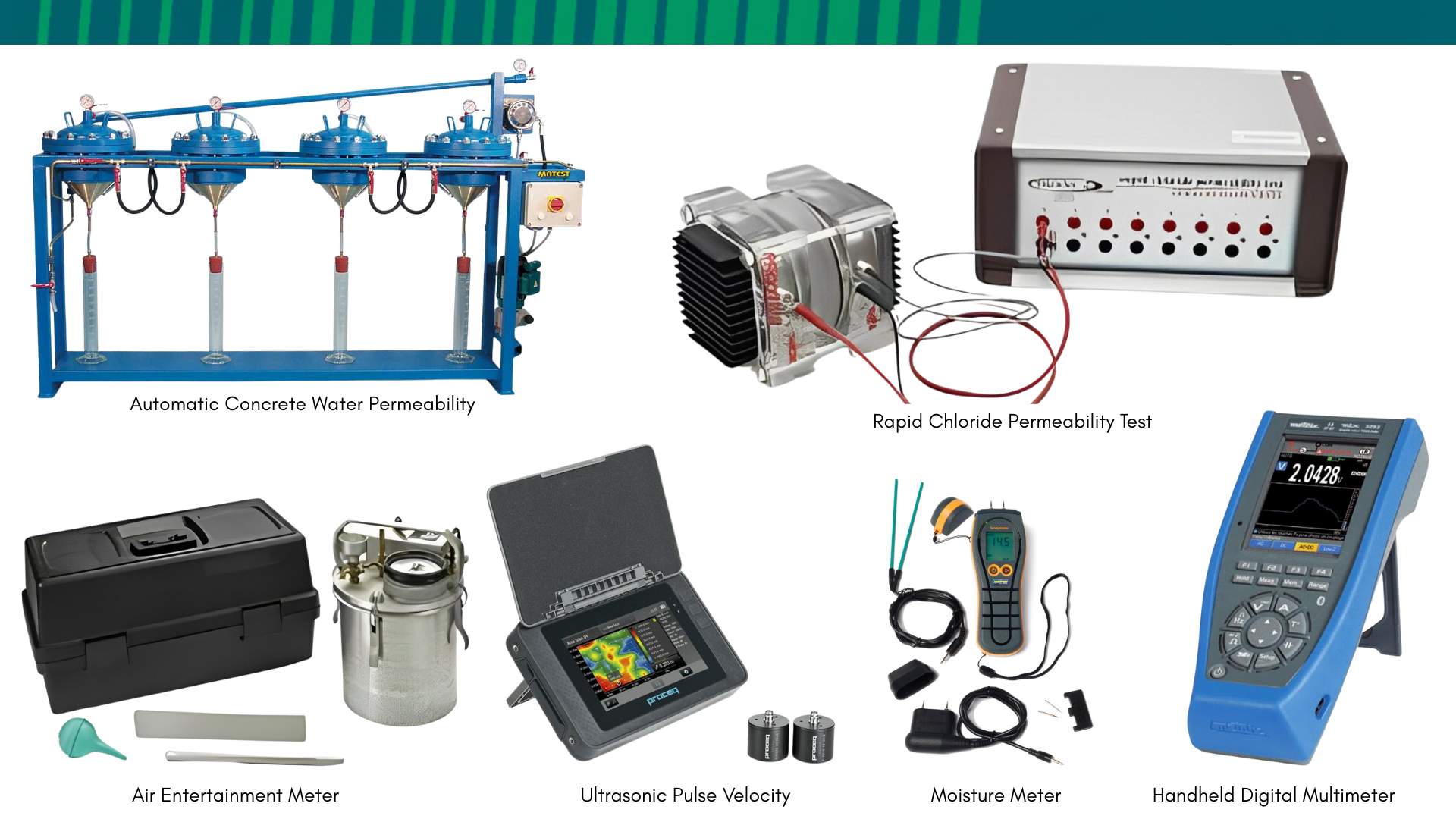
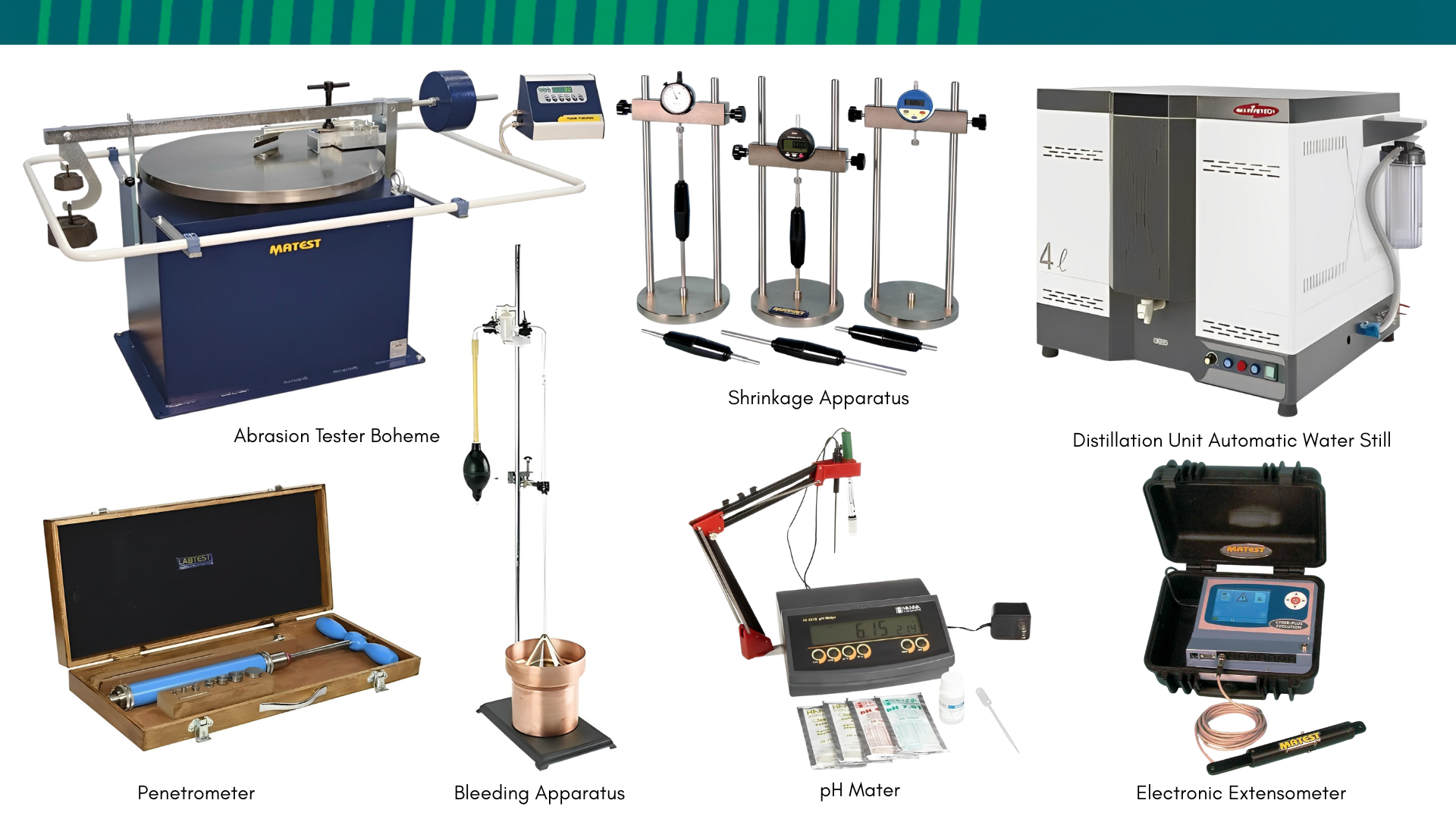
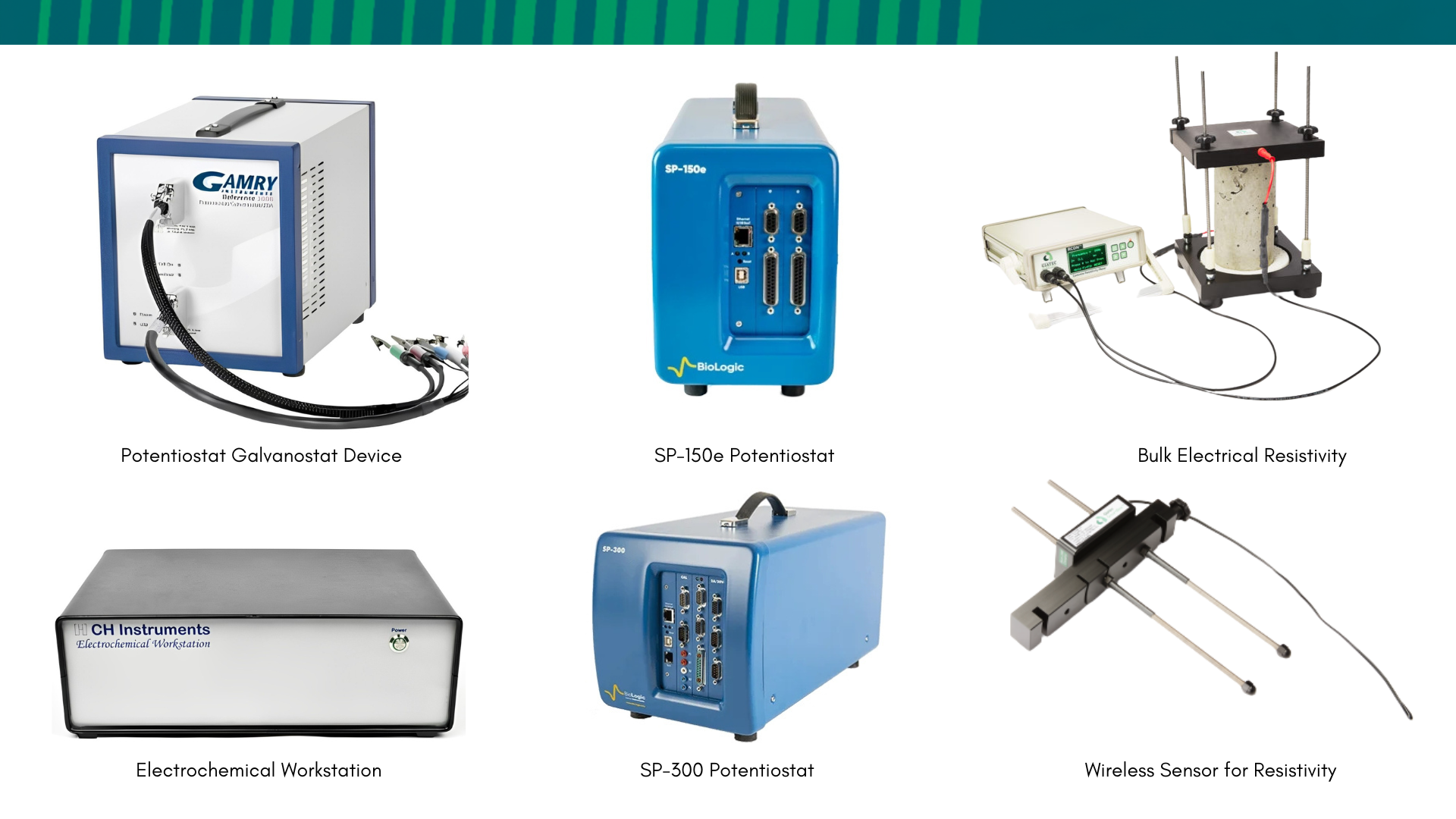

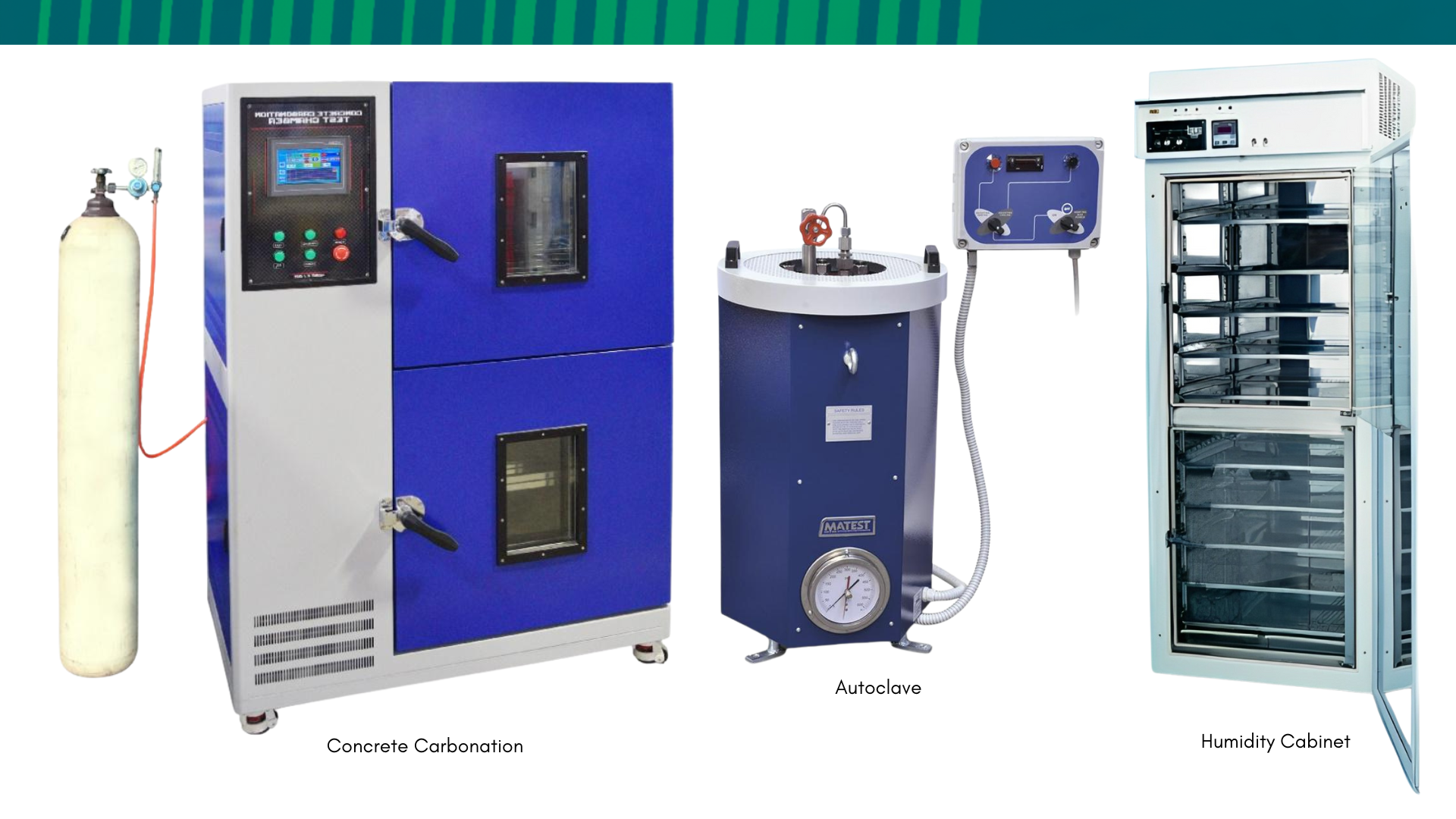
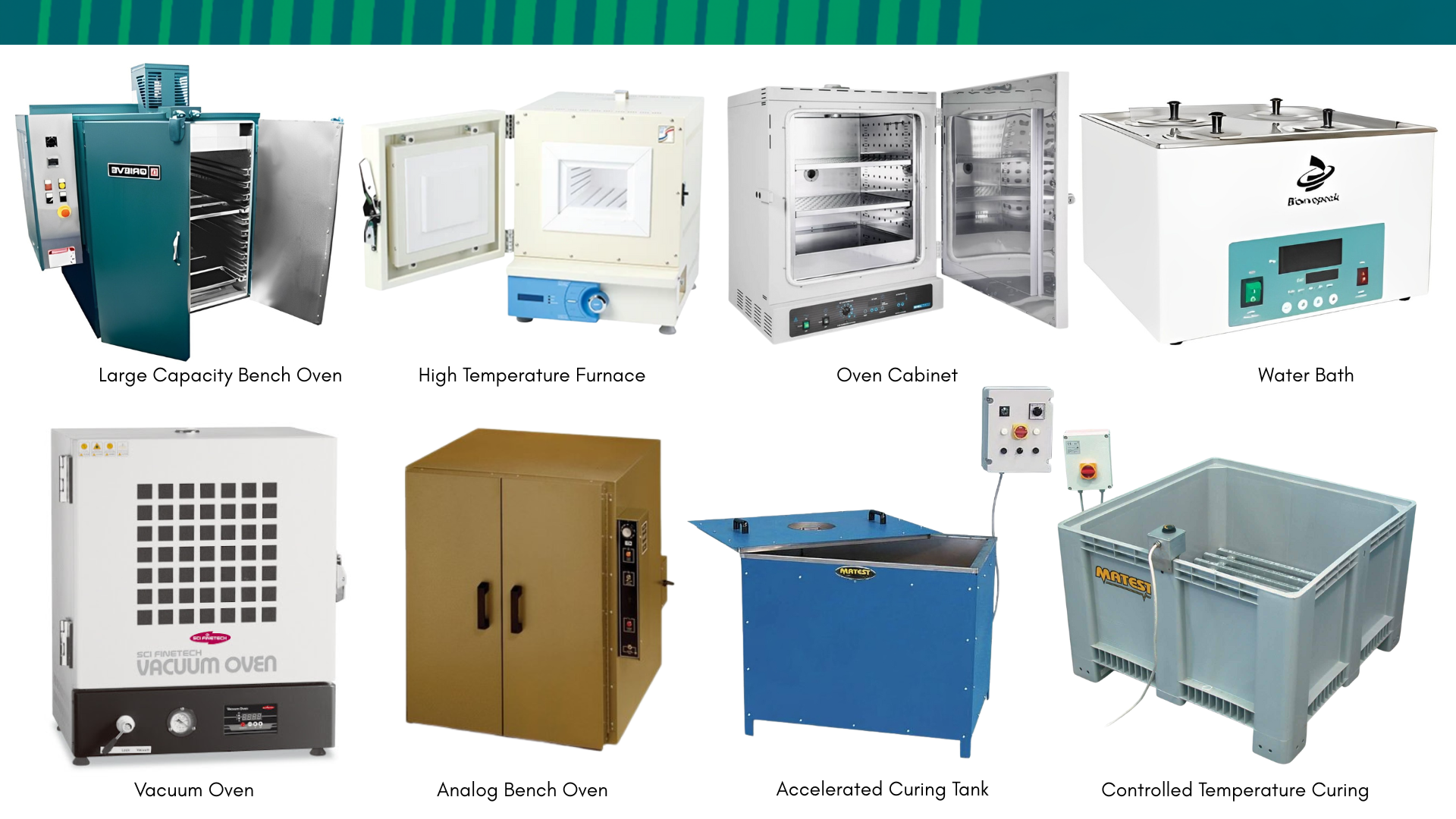

The Field Research & Testing Station at IRC-CBM extends material research beyond the laboratory by enabling long-term exposure studies under real-world conditions. Located in a marine environment, the station allows for continuous monitoring of structural elements to assess durability, degradation, and performance. One ongoing study involves GFRP-reinforced concrete exposed to marine conditions, evaluating its resistance to corrosion and structural behavior over time. This facility is central to validating lab-based findings and advancing the development of resilient and sustainable materials for infrastructure in harsh environments.
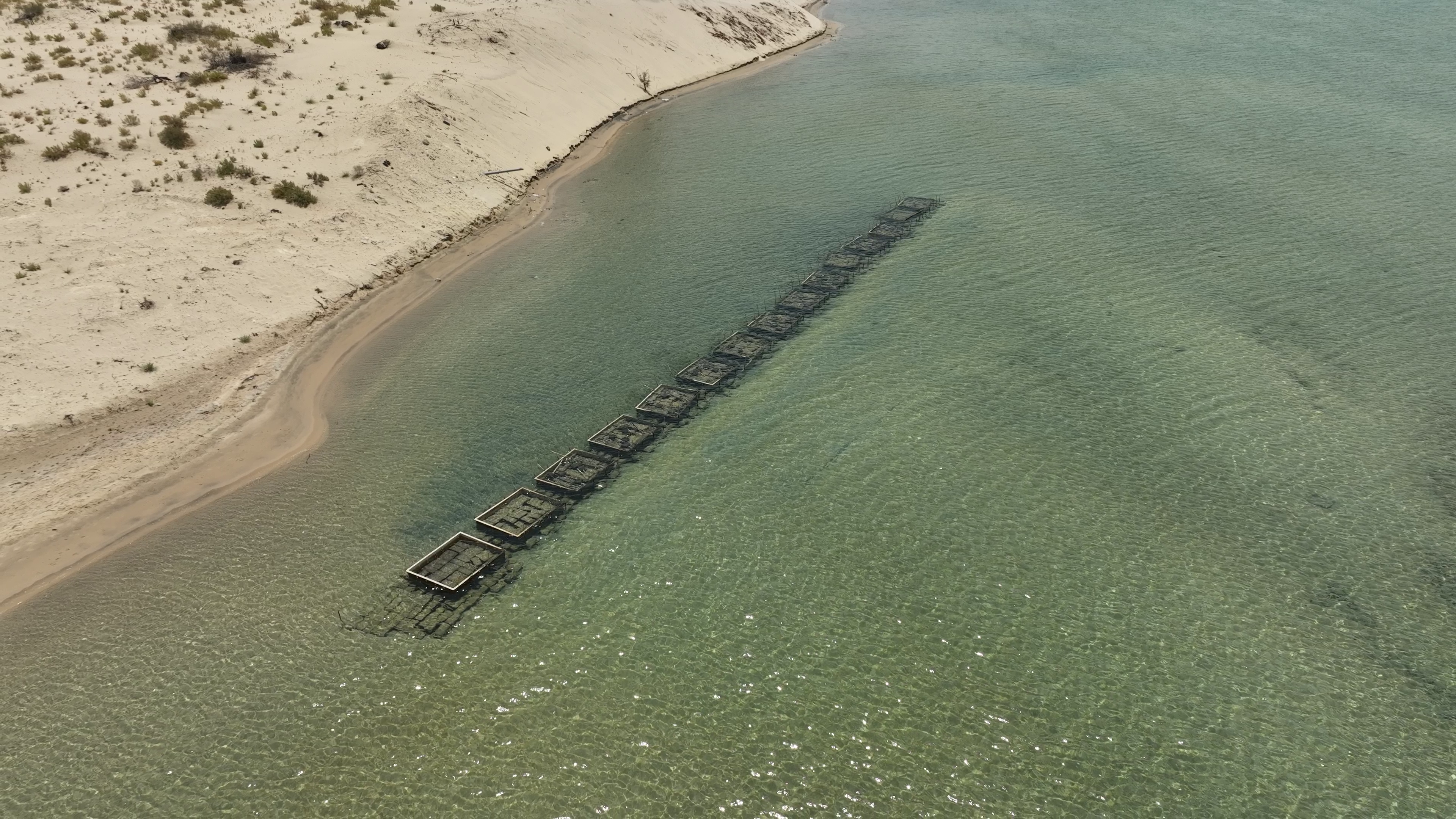 |  |  |